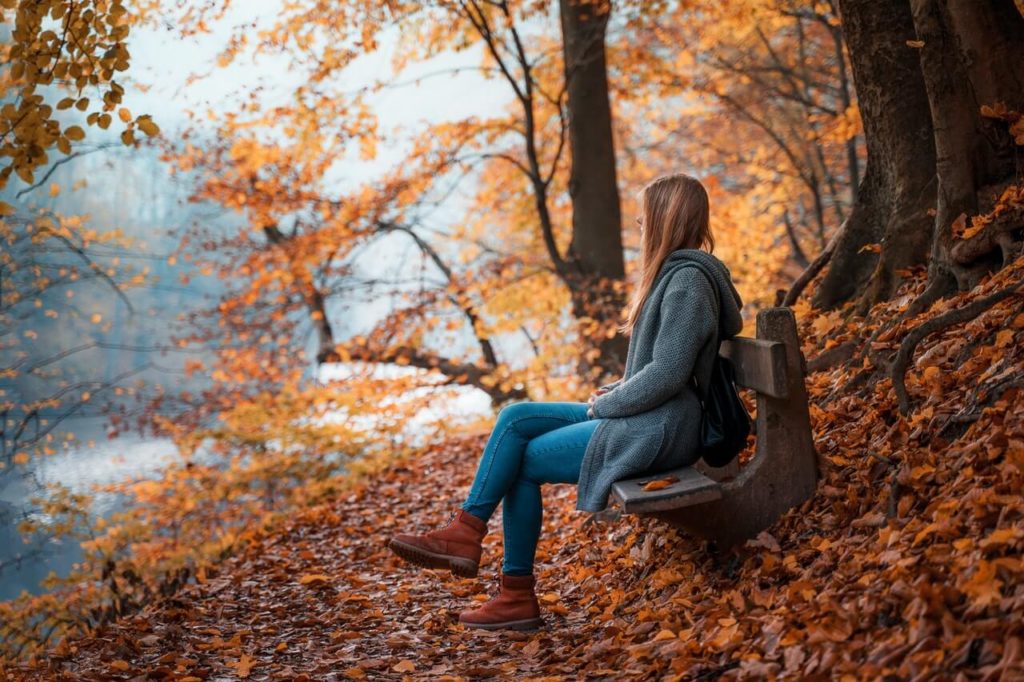MeThe first mushrooms have already shown themselves and it gets dark outside a little bit earlier every day: autumn is coming! Those dark days don’t do everyone good; light has a major influence on your mood. Who doesn’t feel happy and energized after the dark winter months, when you finally spend some sunny spring days outdoors again? In this blog I will give you tips on what you can do against a winter depression. This way you’ll get through the dark winter months energetically!
Winter depression
During dark autumn and winter days, a significant number of people suffer from a so-called “winter depression”, also known as Winter Blues or Seasonal Affective Disorder (SAD). About 3-10% of people (of which the majority are women) suffer from complaints such as tearfulness and irritability, indecision and uncertainty, tiredness, reduced muscle strength and initiative, sleeping and eating problems (for example tendency to snack) due to the reduced exposure to (bright) outdoor light and weight gain. Just turning on the desk lamp doesn’t do the trick.
The cause
The cause of winter depression is often the lack of light. Your eyes communicate through your brain with an “inner clock”. Our brains recognize the spectral composition of natural light. In the morning and early afternoon, the blue light color predominates. At the end of the afternoon and in the evening, the red color predominates. Then it gets dark.
The effects on your hormones
The daily transition from light to dark affects the amount of cortisol and melatonin that our body produces. These are the hormones that regulate our day and night rhythm. The cortisol level in your body responds to the blue light color. Cortisol gives you energy, but also regulates your alertness and concentration. Melatonin, the so-called sleep hormone, reacts to the red light color. The amount of melatonin in your body increases from the moment it gets dark. The color of the light and the intensity therefore determine our feeling, energy level and behavior.
Therapy
Winter depression is usually not a real depression, but a mild form of it. We therefore also call a winter depression a ‘winter blues’. However, some people have such severe complaints that they do actually suffer from depression. There are different treatments for the different types of depression. Light therapy often helps very well when you’re suffering from winter depression.
What can you do?
Not only people who work in the office, for example, are (too) rarely outside. Especially when it gets dark early, the weather is bad and we work from home, we spend a lot of time indoors. However, staying indoors is not that healthy and can therefore cause an annoying winter blues. To counter this, you can do the following things:
- Go outside for half an hour every morning between 8 and 9 am. There is then a relatively large amount of ‘blue’ in the light. Blue light inhibits the production of the sleep hormone melatonin.
- Go outside around lunch time.
- If you work indoors, sit as close to the window as possible.
- You can make the lighting in the house stronger, with special daylight lamps.
- Spending a few days in a sunny destination in winter (whenever possible) improves your mood.
- Do not always stay indoors, even in bad weather. Outdoor activities such as sports or exercise counteract a winter dip.
- Eat a healthy diet and take a multivitamin as a supplement
- Take the bike instead of the car
- Get plenty of sleep.
Help with a winter blues
Do you notice that, despite these tips, you continue to suffer from a winter dip? Discuss it with your practitioner, ask your doctor for help or click here to see how you can get started via NiceDay.











